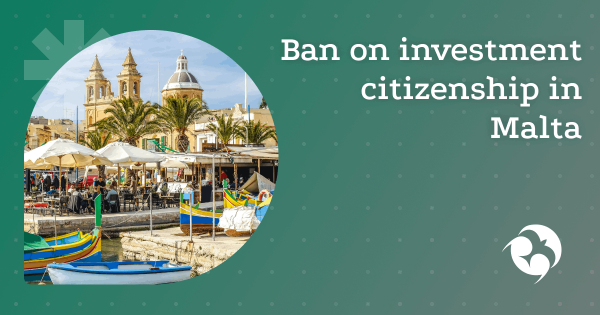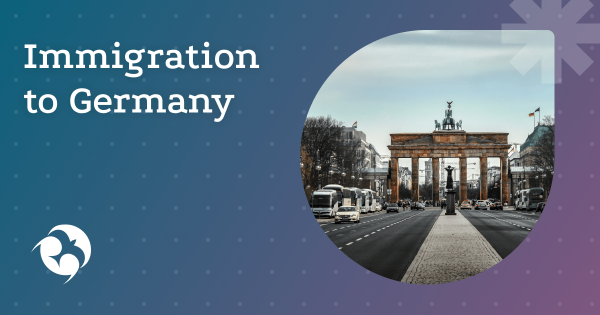On April 29, 2025, the European Court of Justice issued a historic ruling, ruling that Malta’s citizenship-for-investment program is contrary to EU law. The court categorically determined that a passport of a member of the European Union cannot be issued solely for financial investments without establishing a “genuine connection” of the applicant with the country. This decision threatens the existence of the last investment citizenship program in the European Union.
Details of the solution and the current situation
The Maltese Citizenship by Investment program (which cost applicants from €690,000 to €1.46 million) topped the Henley and Partners Global Citizenship Program Index for 10 years in a row, receiving top marks for visa-free access and flexible resettlement conditions. However, the European Commission has previously raised concerns about the risks associated with security, money laundering and tax evasion.
The statistics clearly demonstrate the growing pressure from the EU:
- From 2013 to 2024, 28,045 people obtained Maltese citizenship through various programs;
- In 2022, only 177 applications for investment citizenship were submitted (317 in 2020);
- Revenues from the program have fallen from a peak of 400 million euros in 2016 to 110 million euros in 2022.
Revision of citizenship on the way to the EU in Montenegro
In an effort to meet the requirements for EU membership (expected by 2028), Montenegro is also taking steps to abolish the “golden passports”. On December 31, 2022, the country closed its citizenship by investment program, launched in 2019, on the recommendation of the European Union. By that time, more than 1,000 honorary citizenships had been granted, including to citizens of Russia, Belarus, China, Kazakhstan and other countries.
Prime Minister Milojko Spajic ordered a full review of all honorary citizenships issued. He demanded to find out whether the recipients really contributed to the creation of jobs and the development of the country’s economy. The reason for the inspections was the case of a businessman from Kosovo, Nasser Ramai. He became a citizen in 2023, but is now accused of tax evasion worth €2.2 million. Spajic stressed that the granting of citizenship as a personal service without clear criteria promotes corruption.
The verification will also affect previously issued citizenship. The actions were part of efforts to bring the country’s legislation into line with EU standards. This is an important condition for obtaining financial assistance and further integration into the Eurozone. Experts note that Montenegro may cancel the visa-free regime for citizens of Russia, Belarus and China. Although it is still trying to find a balance between the requirements of the EU and the economic interests related to tourism.
Changing priorities
The situation with “golden passports” is changing not only in Europe. After the conflict in Ukraine, most Caribbean countries, including Grenada, Saint Kitts and Nevis, Dominica, and Antigua and Barbuda, banned Russians and Belarusians from participating in their investment citizenship programs.
Cyprus (which previously offered one of the most popular “golden passport” programs in the EU) closed it back in 2020. This is the result of a journalistic investigation that revealed numerous violations. Recently, the government began to revoke the citizenship of 10 investors and their families due to alleged abuses.
The golden citizenship program in Vanuatu is also currently being reviewed. Because the government has not provided for all financial obligations and risks. The option is currently suspended – there is no contribution to either coconut oil or cocoa. Only the option of a non-refundable fee.
In parallel, changes are also being observed in other countries. For example, Bulgaria has completely cancelled its investment citizenship program. The geography of applicants for Maltese citizenship has also changed: the proportion of Europeans has decreased to 25%, while the proportion of applicants from Asia (38%) and North America (30%) has increased.
The EU’s long-term pressure on investment citizenship programs has already led to all member states except Malta suspending or changing their programs. The Malta court’s decision sets a precedent that effectively closes the era of “golden passports” in the European Union.

- We will answer all your questions
- We will help you choose the best option
- We will guide you through every step or do everything for you
Recommendations for applicants for European citizenship
Investment programs for obtaining citizenship are raising more and more questions and are constantly undergoing changes. Malta is a prime example of how a program that has been approved and operating for years can be considered illegal. Similar risks exist in other jurisdictions.
In the current circumstances, naturalization through a residence permit remains the only reliable way to acquire European citizenship. This path requires more time, but it is more transparent and protected from changes in legislation.
History shows that a long-term naturalization strategy through residential programs provides a more stable and secure outcome compared to investment programs subject to political and legal risks.













